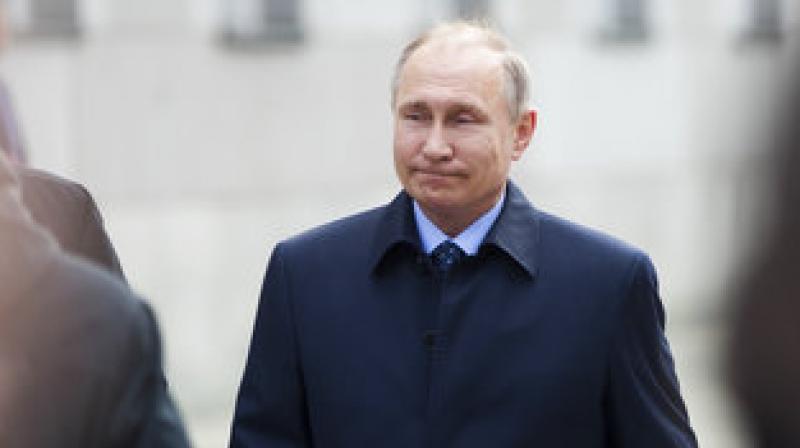Senate Votes to Limit Trump's Power to Lift Russia Sanctions

EghtesadOnline: The U.S. Senate voted to increase sanctions on Russia, and give Congress the power to review any attempt by President Donald Trump to unilaterally lift them, a rebuke of the president’s suggestions that the U.S. improve relations with the country.
The Senate legislation, passed Thursday 98 to 2, also imposes new sanctions on Iran. The House Foreign Affairs Committee is likely to take up the bill, though the timing is unclear, said a House Republican aide who asked for anonymity.
According to Bloomberg, lawmakers said they’re responding to Russia’s involvement in Ukraine and meddling in the 2016 U.S. presidential election, and to Iran’s development of a ballistic missile program, support for terrorism and violations of human rights.
“We must take a stronger stance in deterring Iran and holding its regime accountable for its actions and addressing Russia’s years-long pattern of provocations,” said Senate Majority Leader Mitch McConnell, a Kentucky Republican, in a statement.
U.S. intelligence agencies concluded that Russia sought to influence the American presidential election last year. Congressional committees and the Federal Bureau of Investigation are examining the Russian interference and whether there was any collusion with Trump’s campaign.
The Senate also voted Thursday to add non-binding language reaffirming the U.S. commitment to Article 5 of the NATO alliance, which requires members to defend other nations in the alliance. The provision, which was offered by Lindsey Graham, a South Carolina Republican, is another message aimed at Trump. The president has at times criticized NATO and has suggested he might not deploy U.S. troops to defend a member state under attack, through he subsequently reaffirmed his commitment to Article 5.
Administration Review
The Trump administration is “committed to existing sanctions” and won’t take a position on the Senate legislation, S. 722, until the House acts, spokeswoman Sarah Huckabee Sanders told reporters at the White House. Current sanctions are "the best tool for compelling Russia to fulfill its commitments" over Ukraine, she said.
Trump has repeatedly said that he hoped to improve relations with Russia and join forces with the country to fight Islamic State.
Under the legislation, new Russia sanctions could be levied on entities engaging in “malicious cyber activity." It would require the administration to explain any moves to ease or lift sanctions, and create a new mechanism for Congress to review and block any such effort.
The legislation would put into law penalties that were imposed by the Obama administration on some Russian energy projects, a move in 2014 that came in response to Russia’s actions in Ukraine. It would also allow new sanctions on state-owned entities of the Russian economy, including mining, metal, shipping and railways. And it would ask the administration to prepare a study on the possible effects of expanding sanctions to cover sovereign debt and any derivative products.
"It’s a warning shot," said Tim O’Toole, a Washington-based attorney at Miller & Chevalier who advises clients on sanctions compliance. "It gives the president much more power too expand sanctions. But it doesn’t give the president the power to ratchet them down."
On Iran, the bill directs the president to impose sanctions on any entity that knowingly contributes to Iran’s ballistic missile program or other programs to develop vehicles to deliver weapons of mass destruction. Those who are sanctioned would have their assets within U.S. jurisdiction frozen and would be barred from entering the country.
The Iran penalties would also apply to those who own or control entities or who provide financial, technological or other support for a sanctioned party. The bill would allow the president to impose sanctions on anyone who commits internationally recognized human rights abuses, such as extrajudicial killings or torture, against individuals trying to expose illegal activity by Iran or to promote human rights in the country.


